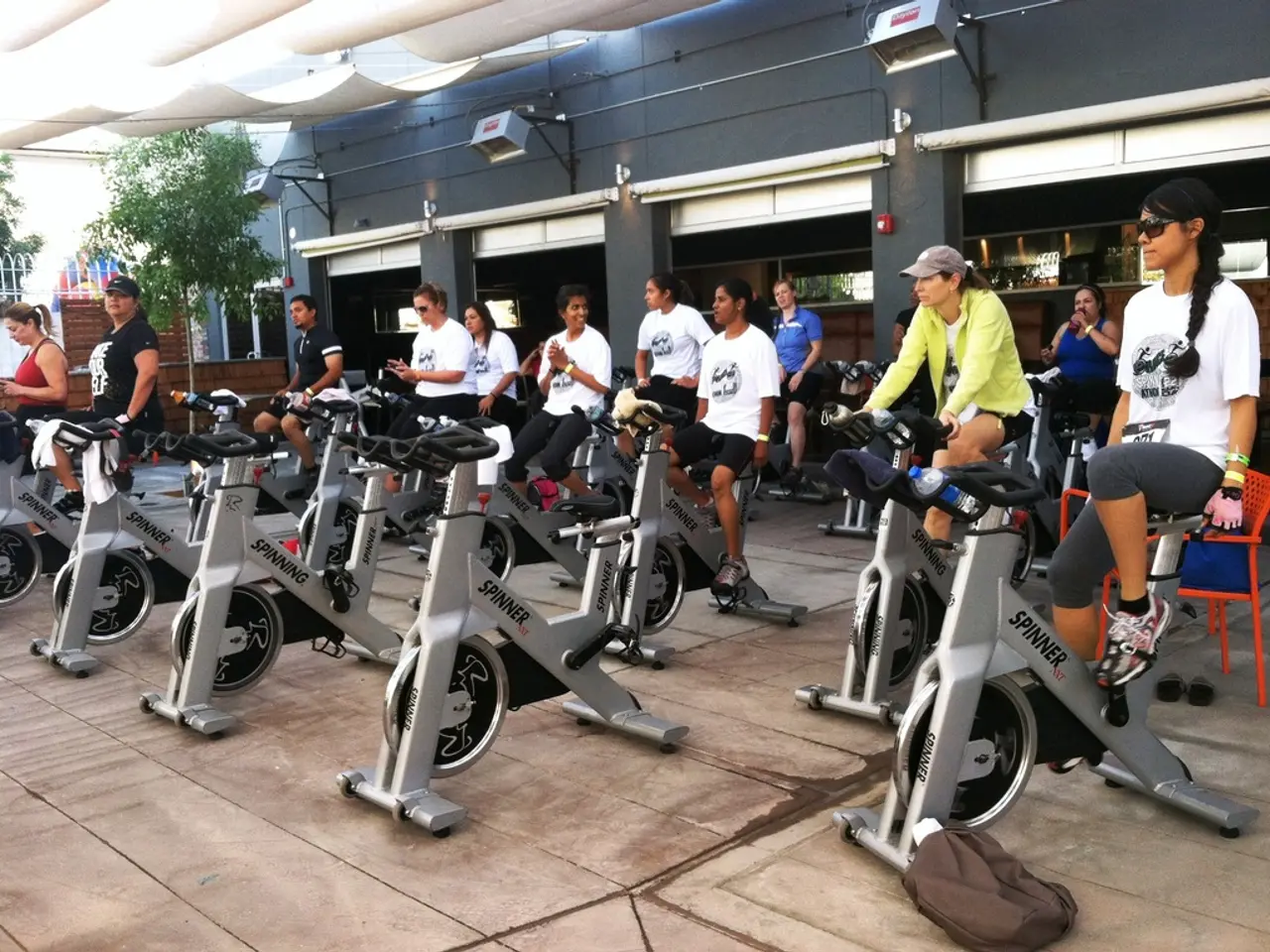Optimal Nutritional Aid for Post-Exercise Regeneration
Pre-workout and post-workout supplements can enhance workout performance and speed up recovery, but they should be used as part of a balanced nutrition and training plan. Here's a guide to some popular supplements and their recommended dosages.
Pre-Workout Supplements
Pre-workout supplements primarily provide acute boosts in energy, focus, strength, and endurance. Commonly found in these supplements are stimulants like caffeine and compounds such as creatine, beta-alanine, and citrulline malate, which also support longer-term muscle performance and growth.
The recommended dosage for caffeine in pre-workouts is 3-6 mg per kg of body weight, consumed about 60 minutes before training to maximize performance benefits. However, individual tolerance varies, and overuse can reduce effectiveness and disturb sleep.
Other supplements like creatine (e.g., magnesium chelate) and citrulline malate are also commonly found in pre-workout formulations. Creatine supports strength and hydration, while citrulline malate improves blood flow and endurance.
Post-Workout Supplements
Post-workout supplements focus on muscle recovery, protein synthesis, glycogen replenishment, and reduced muscle soreness. Key components include fast-absorbing protein sources, carbohydrates, and sometimes anti-inflammatory and rehydration agents.
Fast-absorbing protein sources, particularly whey protein isolate (20-30 grams within 60 minutes post-workout), are rich in essential amino acids like leucine, which stimulate muscle repair and positive protein balance. Carbohydrates are also essential for restoring glycogen, reducing cortisol, and supporting an anabolic environment.
Recommended Dosages
| Supplement Component | Recommended Dosage | Timing | Purpose | |-------------------------------|----------------------------------------|----------------------------|-------------------------------| | Caffeine | 3-6 mg/kg body weight | 60 min pre-workout | Increase energy and focus | | Creatine (e.g., magnesium chelate) | ~500 mg magnesium creatine + ~3 g creatine | Pre-workout (20-30 min prior) | Enhance strength and hydration| | Citrulline Malate | About 6 grams | Pre-workout | Improve blood flow and endurance | | Whey Protein Isolate | 20–30 grams | Within 60 min post-workout | Muscle repair and synthesis | | Carbohydrates | Variable, depends on glycogen needs | Post-workout | Replenish energy stores |
Other Supplement Options
- BCAA intake (3-20 grams daily) can support muscle repair and reduce soreness, with intake divided around workouts.
- Chocolate milk offers a near-perfect carb-to-protein ratio and provides fluids and electrolytes to support muscle glycogen restoration and hydration.
- Products like The Protein Works All In One Recovery, BCAAs, Naked Mass, and Grilled chicken breast with sweet potatoes are also options for post-workout recovery. Each has its benefits and drawbacks, so it's essential to consider individual preferences and dietary needs.
Tips for Using Supplements
- Pre-workouts should be used sparingly (ideally only on heavy training days) to prevent stimulant tolerance and sleep disruption.
- Post-workout protein and carbohydrates are best consumed within an hour after exercise for optimal muscle recovery.
- Maintain hydration during and after workouts.
In conclusion, while supplements can aid in workout performance and recovery, they should not replace a balanced diet. If dietary intake is already optimized, supplements may not be necessary. However, for those looking to enhance their workout experience, these supplements can be a valuable addition to their routine.
Healthcare products like pre-workout supplements primarily boost energy and focus during fitness-and-exercise, while containing components such as creatine, beta-alanine, and citrulline malate that support muscle performance and growth in the long term. Post-workout supplements, on the other hand, focus on health-and-wellness, aiming to aid in muscle recovery, protein synthesis, and glycogen replenishment. A popular post-workout supplement is whey protein isolate for its ability to stimulate muscle repair and positive protein balance. In sports, such supplements can be part of a nutritional strategy for improved performance and faster recovery. It is crucial to remember that while supplements can be beneficial, they should not replace a balanced diet and training plan for optimal health, wellness, and fitness-and-exercise outcomes.




